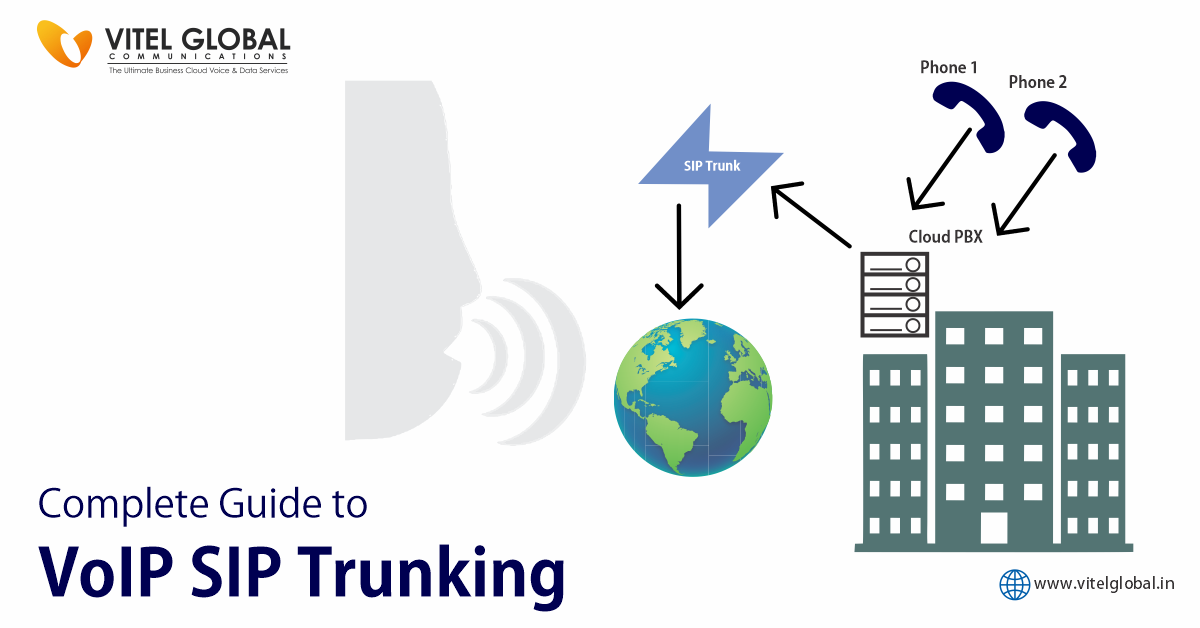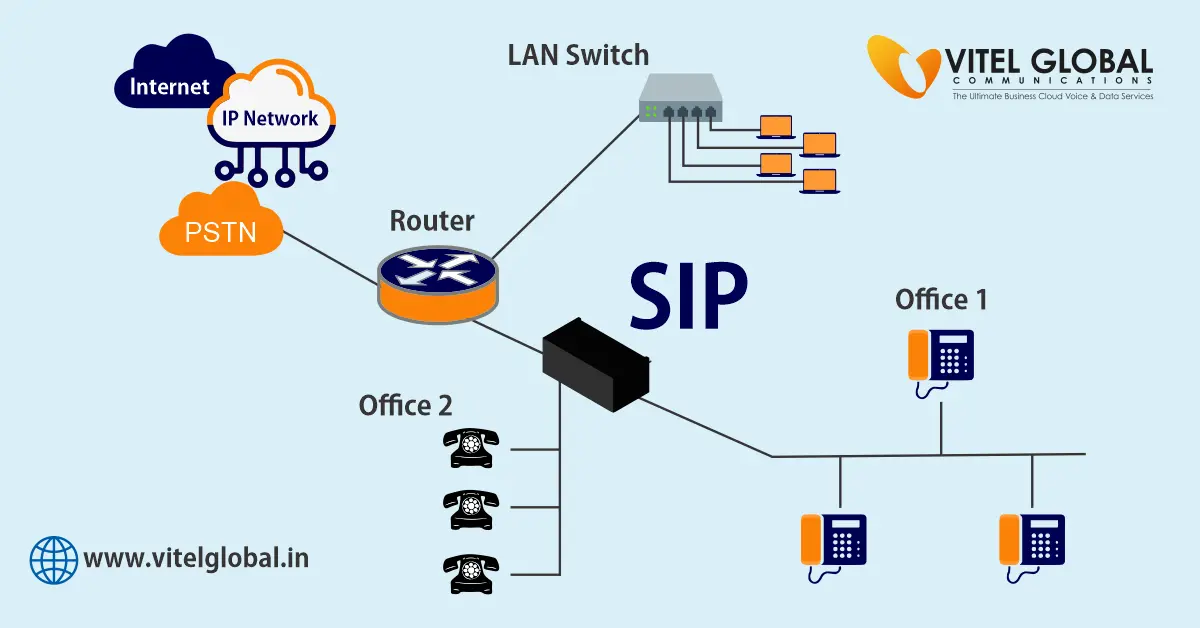Table of Contents
Session Initiation Protocol (SIP-Trunking) allows for the transmission of unified communications services over the internet, also called the combination of various SIP session branches or channels.
An advanced technology known as IP-enabled PBX (Private Branch Exchange) is a private phone network that expands on the phone-system functions that matter the most to businesses. It allows for the truncation of several SIP sessions.
Although this latest feature is appealing, the advantages go far beyond financial gain. Therefore, examine some of the most popular advantages of SIP-trunking.
Below are some outstanding benefits of SIP-Trunking through which you can optimize your business communications, ensuring the best productivity.
Affordability:
Traditional phone service will subject businesses to additional costs for local, long-distance, and international calling. But SIP-trunking allows businesses immediate access to understandable pricing frequently charged per usage.
Moving to a SIP provider often results in predictable low monthly costs instead of monthly voice communications statement shock and confusion. For an average organization, switching to SIP, according to recent research, resulted in monthly savings of 50%. However, this number can be substantially more significant for those who make many long-distance and international calls. Therefore, switching to this technology is much easier and less expensive than you think.
Quick Return on Investment:
Many technological investments may take organizations years to see a return on investment. But in some cases, investing in technology turns into a game. Because there need to be more case studies demonstrating the ROI. However, this cloud technology is a proven one with low initial investment. And it demonstrates that organizations can begin witnessing cost savings with the first monthly billing statement without incurring capital expenses.
Mobility & Global Potential:
It helps your business meet the demand for rapid expansion across several different geographical regions, and remote workers can be integrated by fusing voice and data into a single network. It develops quickly and with a great deal of flexibility if you open new locations or hire full-time remote workers because of its rapid scalability feature.
Virtual phone lines known as SIP trunks that run on PBX networks enable users to make and receive calls to anyone worldwide with a phone number over the internet. Cloud-based business phones employ a packet switch network, and voice calls are split into digital packets and sent through a network to their destination.
Before SIP gained its reliability as a method of transmitting speech signals, all calls were routed over the Public Switched Telephone Network (PSTN). As we know, this comprises the copper phone lines that we usually associate with the conventional landline. Calls on the PSTN must be physically connected between two locations to communicate, as it is a circuit-switched network.
On the other hand, no matter how many concurrent calls are anticipated, the company only needs one SIP trunk to handle them. Because it can hold an unlimited number of unique channels, if not, it may be necessary to have a specific number of channels depending on how many calls your company will make at once. Therefore, a SIP channel can be considered a single incoming or outgoing call.
Reliability:
With a vendor that offers mobile-failover as a form of redundancy by diverting your calls to other offices or employee mobile devices, cloud phones can be used for communications even in the event of a breakdown. Unlike traditional telephone weather conditions, mischief in the phone room, or any natural calamities cannot disrupt cloud telephony, it is a reliable technology.
Easy Administration:
SIP-trunking and VoIP phones offer accessible administrative gateways for on-site control. As a result, your IT needs to use a mobile d-hold to speak with customer support before holding an old agent. Advanced tools in cloud telephony enable actions like call routing adjustments, extension changes, and entirely on-demand phone line additions.
Backup in Case of a Failure:
You can use any dependable internet connection provider. Service vendors suggest backup links through any Internet connection for business continuity. They can both prevent communication failures to provide an emergency telephone service if the primary link is the provider’s failure.
Integrated Communications:
To access unified communications as a service, this can serve as a gateway (UCaaS). And firms can benefit from an IP-based communications suite. Internet-based communications include mobility, instant messaging, collaboration apps, and other adaptable cloud-based tools. It improves business productivity. Hence, opt for a SIP-trunking service provider that provides a comprehensive range of communication tools, including unified communications, video conferencing and many more.
Mobility:
Mobile workers can continue to connect to on-site communication systems. Also, anyone can reach them via a single, dedicated business phone line. Cloud technology can deploy adaptive, user-friendly VoIP apps on mobile devices. Due to these superior technology mobility features, organizations can still communicate even if their Internet connection stops.
Consolidation of the network:
Phone conversations are a form of data transfer enabling businesses to merge their voice and data communications into a single network. Most organizations charge separately for voice and data services, even using a single provider. Even though this will strain the data connection’s bandwidth, it will ultimately save money and enhance reliability. Hence, we suggest businesses switch to IP phones that work on fibre-optic Internet connectivity.
Elimination of Infrastructure:
Regular phone service makes it challenging to expand any business infrastructure. For this reason, you may have to wait a long time before adding more phone lines. And this depends on the local telecommunications operator. So, connect the phone lines to the internet to add them to the SIP trunk.
In addition, remote workers or those who work from home frequently need a company-provided mobile device, which is an additional expense for your business.
Conclusion:
These are the advantages a company can achieve by implementing cloud technology and replacing outdated communication methods. However, such implementation or replacement requires the services of a service provider who is dependable, trustworthy, affordable, and flexible in providing round-the-clock customer service.
Learn more about the cost-cutting strategies and other options for businesses using Cloud Hosted Phone Services



